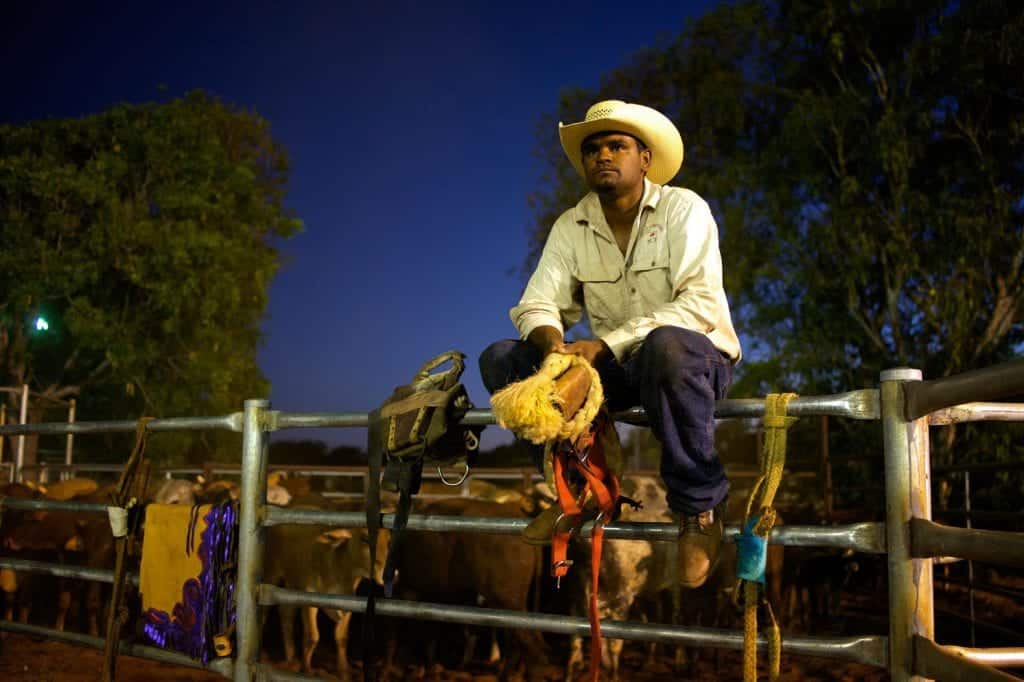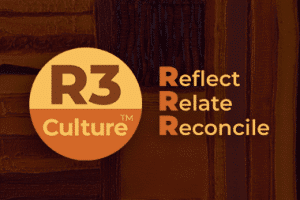
Evolve explores Aboriginal Leadership Wisdom in our cultural awareness training programs.
Leadership. There are countless books and courses on the subject and almost everyone has an opinion about it. We all desire it. We all know what it looks like when it’s done properly. We spend thousands of dollars learning how to get it right. But rarely is it understood or explored from an Indigenous cultural perspective. Certainly, when it comes to looking at Indigenous styles of leadership there is at best lack of comprehension and understanding to complete ignorance.
Traditionally, leadership is largely the responsibility of wise Elders who draw on Indigenous perspectives and cultural strengths to lead their people. More recently younger Indigenous people are undergoing leadership courses but few that are informed by Aboriginal culture.
The Evolve approach to leadership is different. We turn leadership on its head by examining and questioning what leadership is in gudia (non-Indigenous) cultures before exploring the different ways in which it is viewed in Indigenous communities.
7 Ways to Improve Your Leadership by Drawing from Aboriginal Wisdom
by Munya Andrews, 2018
How does Indigenous Leadership differ?
“Leadership is earned; it is given when you have proven you can deal with responsibility and you understand that responsibility.” – The Hon. Linda Burney MP
There are many cultural values that inform and underpin Indigenous leadership. We outline the 7 most important values below and include a leadership challenge for each of these. We hope you enjoy these 7 ways to improve your leadership by drawing from aboriginal leadership wisdom.
1. Community
Indigenous leadership focuses on community interests rather than that of the individual. Leaving behind a legacy that benefits everyone is paramount. As such Indigenous leadership is future-oriented rather than motivated by immediate self-gratification.
Western leadership on the other hand (especially in business and politics) tend to focus more on individualised, hierarchical notions of leadership rather than group collaboration.
Leadership Challenge: Will this decision benefit the community as a whole, without creating significant ‘winners’ or ‘losers’?
2. Collaboration
Indigenous cultures are highly collaborative with an emphasis on group consensus in decision making. Roles are clearly defined with those whose approach is more akin to Quaker philosophy in which group members develop and agree to support a decision in the best interests of the whole.
Leadership Challenge: Has everyone been consulted and contributed to this decision?
3. Safety
The safety of all members in this process is vital to achieving consensus. Cultural safety features strongly in Indigenous cultures. It creates an environment that is spiritually, socially and emotionally safe for people where there is no assault or denial of their identity, of who they are and what they need.
Leadership Challenge: Have I created an environment where people feel safe to contribute and express themselves freely?
4. Responsibility
Leaders are responsible at all levels – personally responsible for themselves and collectively responsible for the group. Responsibility demands accountability, self-reflection, and self-assessment. It requires courage and humility.
While CEO’s in gudia organisations carry many responsibilities, they are largely administrative such as dealing with compliance issues and legality.
As such, they are only held accountable to those in authority either government or the legal system whereas Indigenous leaders are held accountable to the entire community who keep their leaders in check.
Leadership Challenge: Do I actively seek feedback from everyone in my organisation, viewing each person as an equally important contributor?
5. Listening
Listening is a much-overlooked leadership tool. It can be a powerful technique but only in an organisation that values listening. There are many Indigenous practices and techniques that teach invaluable listening skills that Evolve draws upon such as Dadirri (deep listening). More importantly, listening creates an environment of respect and safety. By contrast, non-Indigenous leadership does not often place a high premium on listening to self or others.
Leadership Challenge: Ask a family member if they consider you a good listener. If not, then practice giving them your full attention for 5 minutes, listening with your whole self, without interruption.
6. Strengths focused
At Evolve we are strengths focused in all that we do. We draw upon existing cultural strengths that nurture and sustain leaders, especially that which emanate from Indigenous spirituality. We connect people with the power of their Dreamings that they can call upon in any situation to guide them on their leadership journey.
Leadership Challenge: Are you aware of the cultural and personal strengths of each team member? Have you given them the opportunity to share with you what they perceive as their strength and worked out ways to build upon this?
7. Courage
Underpinning all values is courage – the key to great leadership. Although cultures differ in what makes us courageous, most would agree courage is acting in the face of fear. Indigenous leaders have had to face many personal and political struggles in their lifetimes and they’ve done it courageously. There are many examples from history to draw upon to see how they have dealt with various issues in the face of much social and political onslaught.
Leadership Challenge: Can you tell a story about a courageous Aboriginal person (either living or in spirit world)? If not, do some research so you can share an individual’s story of leadership and courage.
Summary:

(c) Evolve Communities Pty Ltd, 2020

1 Comment. Leave new
Thanks, I’ve been looking for this for a long time